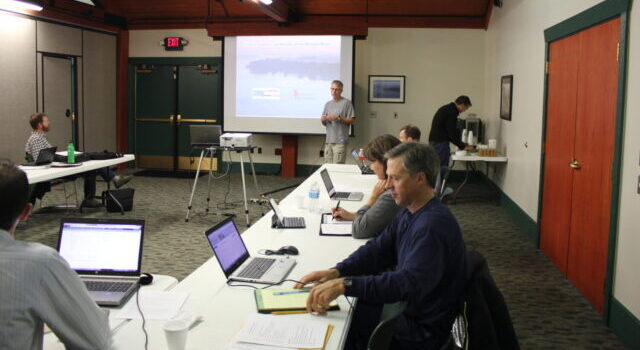
Nobody gets into nursing without being committed to doing a very practical hands-on job, so the idea of nurses going off into academia to focus on research can seem strange.
In fact, it’s a vital way of bringing together practical experience and intellectual pursuit that has tremendous benefits for nurses and patients alike.
It helps to fill in key gaps in knowledge, address the unmet needs of nurses in the community or on the wards, contribute a nursing perspective to the design, development and implementation of new healthcare technologies and much more.
This article looks at some of the most important ways in which nurse researchers contribute, and if you’re considering following in their footsteps, it could help you clarify what it is that you hope to achieve.
Understanding and Sharing Best Practice
There are constant small improvements in nursing practice being made all over the world. Anybody can come up with a good idea or experiment with a new way of working – but how can the profession as a whole find out about these local innovations?
One of the approaches taken by nursing researchers is to focus on specific areas, such as ward sterilization procedures or blood pressure monitoring protocols, and contact departments all across the country (and potentially elsewhere in the world) to find out how they manage them and what statistical data they have on related outcomes.
This creates an opportunity to identify local success stories and try to replicate the results elsewhere so that clear improvements might be identified as best practice and, through publication in nursing journals, be drawn to the attention of the wider nursing community.
It helps ensure that knowledge within the profession continually advances and that everybody can enjoy the benefits of progress.
Filling Gaps in Knowledge

Although people from various academic backgrounds make contributions to knowledge in the sphere of nursing, nobody knows where the greatest need for increased knowledge is better than people who have spent years working in it.
Experienced nurses are able to identify the questions that really need to be asked and can also use their professional networks to draw on the experience of others in fine-tuning those questions.
Because nursing is a tightly structured, hierarchical profession with a very clear pattern of career progress in the early stages, new nurses can get the idea that it’s a product of careful design, but it would be more accurate to say that its modern form has emerged organically over the past century, influenced by several prior traditions.
This means that there are lots of areas where there’s room for improvement to enhance efficiency and make it easier for all nurses to achieve their full potential. The same is true of all the separate practices involved in nursing, across its full range of specialties.
Identifying Nurses’ Needs

What nurses need in the course of their daily work is constantly changing, but again, having spent time working as a nurse makes it easier to ask useful questions about them, and as noted above, asking the right questions is the key to doing good research.
Experienced nurses have an advantage over academic outsiders in this area because other nurses are more likely to be completely open in what they reveal to them and because shared communication styles reduce the risk of misunderstandings.
If this is your background, you will also be well placed to know who it’s useful to talk to in the first place and how to contact them.
Identifying needs through research makes it much easier to implement positive systemic change and to understand where other aspects of the healthcare system may need to do better in order to properly accommodate the nursing profession.
It creates better leverage at a policy level compared to less rigorously compiled reports from verbal input.
Developing New Technologies

From hoists to wound dressings, there are all sorts of technologies nurses use in their daily work that are periodically subject to improvement, and some of the initiative behind this comes from nurses themselves.
When you work with something day to day, you may start to feel that there are ways in which the design could be improved in order to make your job easier or provide a better experience for patients.
Going into nursing research gives you the chance to move this forward, either individually or in collaboration with engineers, pharmacologists or people from other related backgrounds.
Your research can help clarify the requirements of users, taking into account others’ experiences rather than just making assumptions based on your own, and change the way that manufacturers think about the working environment for which their products are developed.
Implementing New Technologies

Whether a new technology emerges from inside or outside the nursing community, it’s one thing to develop it and another to put it into practice.
The latter requires training, and training requires an understanding of how nurses in everyday practice will engage with it. This is where research comes in.
The introduction of any significant change in practice under non-emergency conditions usually begins with a pilot study in which a nurse researcher introduces the technology and observes how nurses interact with it.
It can incorporate questions asked before and after giving a basic explanation of how to use the technology, as well as data on outcomes related to different approaches to use.
The data that emerges from studies such as this then make it possible to identify what kind of information nurses need in order to utilize the technology as designed, along with any aspects of use that some or all of them might find counterintuitive.
Training programs can be designed that take this into account, reducing the risk of problems when the technology is rolled out more widely.
Improving Understanding of Patients

Since everything that nurses do ultimately centers around patients, understanding patient experiences of nurse interactions and environments in which they need nursing care is also an important focus of much nursing research.
There are lots of different ways in which this can be carried out, from the distribution, collection and analysis of patient surveys to one-to-one patient interviews, focus groups with specific types of patient or simple observation of day-to-day interactions.
All these techniques help nurse researchers identify ways in which the patient experience might be improved to yield better health outcomes or increase patient satisfaction.
Such studies can also help nurses directly, for instance by improving their understanding of how to deal with aggressive patients or cope with upsetting situations.
They can extend beyond the patients themselves to include interactions with family members, especially in pediatrics, geriatrics or other situations where kinship care is an important consideration.
Read more about patient engagement in digital times.
Refining the Working Environment

To do their jobs properly, nurses depend on working environments that are hygienic, well organized and well equipped. Nursing researchers also contribute to this area by continually refining the evidential basis on which it is founded.
They run studies exploring the efficacy of things such as infection control procedures and patient hygiene protocols, looking at what happens when they are exposed to different stressors such as a shortage of staff or a particular type of disease transmission.
They also investigate procedures that have always been assumed to be a matter of common sense but have never actually been scientifically tested – sometimes with surprising results.
They look at issues such as the spacing of beds, the movement of visitors through wards and the placement of hand-washing facilities to see if they could be set up more efficiently.
All of these things contribute to making it easier for other nurses to do their day-to-day work and provide patients with the best possible service.
Increasing Nurses’ Competencies

Over the past decade, nurses have seen the tasks that they are allowed to perform and the areas in which they are able to specialize increase significantly. This is thanks in large part to research carried out by nurses in academia, and it’s an ongoing process.
Researchers explore multiple tangential factors such as the overall amount of work required of nurses and how this impacts their ability to carry out their duties efficiently, the degree of job satisfaction that they experience and the level of interest that they have in taking on specific new responsibilities.
They also look at how work is redistributed across nursing hierarchies and within institutions as individual nurses’ competencies increase, and they look at the impacts of such changes on the patient experience.
This kind of study lays the groundwork upon which studies examining the acquisition of new competencies in specific areas can be based.
Expanding the Profession

Some nursing research focuses on the profession itself, exploring demographic factors and its relationship to the general population.
We know that a more diverse population of nurses is an advantage because it improves overall cultural competence and increases the variety of perspectives that can be brought to bear in problem solving.
We also know that people from certain backgrounds are more likely to go into nursing than others.
In addition to race, religion and cultural heritage, sex, gender identity, sexual orientation and disability (where it would not make an individual incapable of doing the job) are also factors, and people from some socio-economic backgrounds are underrepresented.
Nursing researchers endeavor to understand the barriers to participation that underrepresented groups may face, along with factors that may make them feel as if nursing is not for them.
Such researchers may also be directly involved in identifying strategies for overcoming these things. This helps increase the pool of talent that nursing colleges and employers have to draw on, thereby improving the overall standard of care available to patients.
Improving Interdisciplinary Networks

If you study nursing at a senior level, you’ll have improved opportunities to connect not only with other researchers in your field but also with other medical professionals and people researching in the biosciences.
This is the case not only with traditional, on-campus study, but also with online options, which have advanced significantly in recent years and also offer the additional advantage of having a wider geographical reach.
Studying an online DNP-PMHNP program in Virginia will give you the chance to engage with other academics from across the country, which is useful not only at a personal level but also in terms of how it advances the profession.
Marymount University even creates opportunities for its students to liaise with legislators to learn about policy development and feed in ideas.
Nurses at all levels are able to take advantage of the networks developed by nurse researchers when they need access to knowledge or ways to influence policy making, and nursing associations draw on these connections every day when working at the top level to advance the profession.
Improving the Standing of the Profession
The whole history of nursing is one of struggle to gain proper respect and recognition from doctors and other healthcare professionals who have tended to think of themselves as more academic and more intellectually rigorous in relation to their work.
Every nurse who graduates with a PhD helps to illustrate that those who choose the nursing profession are just as capable. Furthermore, every piece of high-quality nursing research helps build up a more solid evidential base on which to base nursing decisions.
It demonstrates that this is a field in which there is a constant, ongoing effort to improve and achieve the very highest standard not only at an individual level but also for the whole profession.
It shows that nurses are every bit as capable of applying themselves as anyone else in the healthcare field.
If you have been thinking about moving your nursing career toward undertaking and publishing research, you’ll find that despite the huge strides that the profession has made, there is still a great deal to be done.
Indeed, every good answer to a well-chosen question opens up more questions. For those best suited to research, this is a lot of what makes the field exciting.
It also means that the profession can keep on improving indefinitely to the great benefit of nurses and patients alike.








